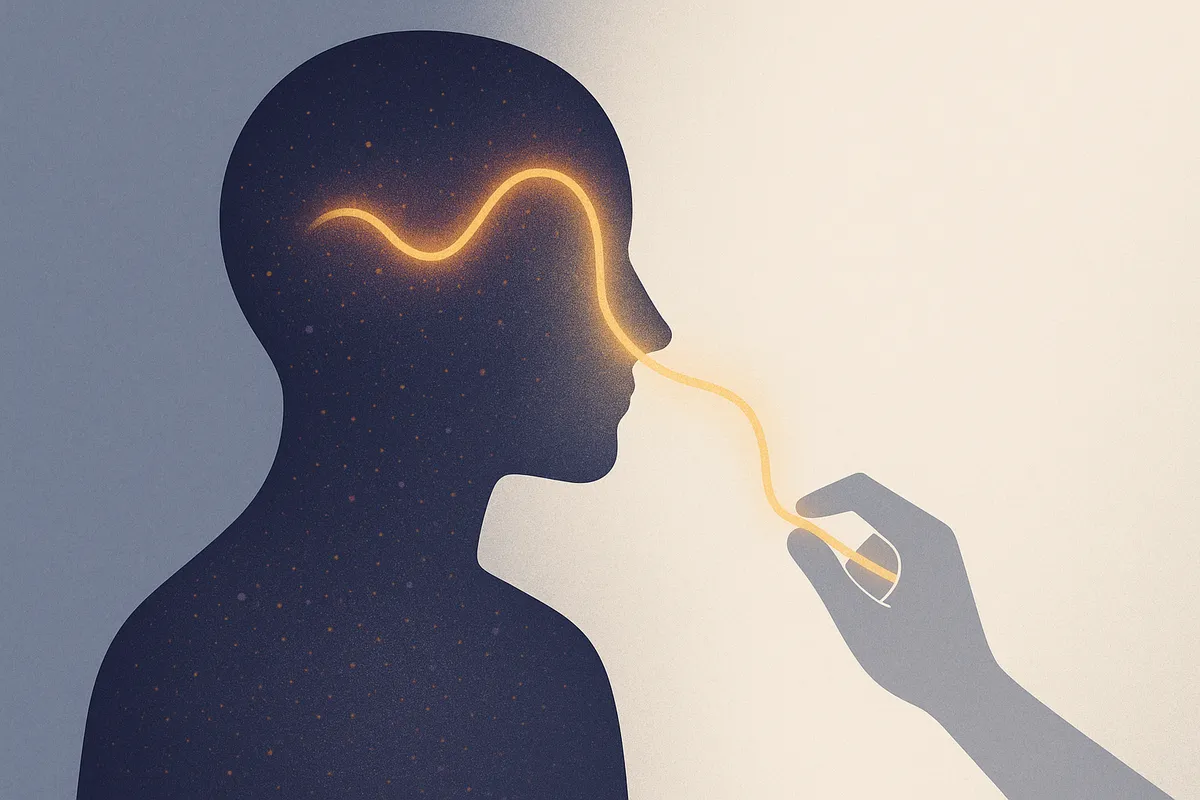What a Cure Would Destroy
 To remove autism is to remove the person who lived it
To remove autism is to remove the person who lived it
Autism is all over the news. People are talking about curing it as if doing so would offer relief. The word itself carries a kind of moral gravity: cure means relief, rescue and restoration. But restoration to what? When you have lived your entire life as an autistic person, there is no earlier, purer version of you waiting underneath. There is only the self that has always been wired this way neorologically — every memory, decision and relationship has been threaded through that difference. To remove it would not be medicine. It would be annihilation.
If I were given a vaccine that suddenly made me neurotypical, I wouldn’t feel cured. I would feel disoriented to the point of collapse. The world I know is built on sensory textures, associative leaps and rhythms of thought that are mine alone. They are not optional features; they are the foundation of my existence, my perception of the world. Strip them away and you don’t reveal a hidden me. You delete the coordinates by which I've learned how to navigate my life. I could learn how to imitate neurotypical behavior; I've already learned how to do that. However, I would become like an actor who is scrambling to remember a script they've never read. I would have to live that way for the rest of my life. I would never recover from that transition, because there would be no "me" left.
This is what cure rhetoric refuses to see. It mistakes difference for damage. It assumes that beneath "the 'tism" there is a more authentic person, someone who can speak, act and be a regular person. But autism is not a layer over me; it is me. If you cure me of it you would be overwriting my operating system, not fixing bugs. Imagine waking up with every sensory filter reversed, every familiar thought pattern replaced, every relationship dynamic inverted. You would not call that healing. You would call it psychic dismemberment.
When people like Robert F. Kennedy Jr. speak of finding a cure or eliminating the condition, they never talk about this. They talk about prevention, about saving future children from a fate like mine. The message underneath is clear: a world with fewer autistic people is a better world. Any compassion they might have is not for me. Their good intentions are not for me but rather for someone they think I could become. What looks like benevolence is actually eugenics. What looks like progress is an attempt to make certain that people like me no longer exist.
Even if a cure for autism were technically possible — there isn't, but let's assume there is. Not asking whether the autistic person consents to having their neurology rewritten is a moral problem. Consent matters not just because it is ethical, but because without it, the so-called cure is just coercion in disguise. A brain cannot be forcibly remade without destroying it. And when the rhetoric around cure becomes policy — when it shapes funding, research or prenatal screening — that violence scales to an entire population.
Autistic life is not suffering waiting to be eased. It is a form of consciousness with its own vulnerabilities and strengths. The suffering comes from the collision between that form and a world that is overwhelmingly not that form. The right thing to do is not to make people who have autism more "normal," but to make the world more accommodating for us. That means redesigning systems, not people. That means asking what environments, expectations and social structures cause us distress. Changing those, not us, is the correct endpoint, the most admirable goal.
A cure for autism is a fantasy of control. It promises safety, simplicity and certainty to parents, clinicians and policymakers. It offers a way to manage the unpredictable by erasing it. But human variation was never meant to be tidy. The autistic mind is not a malfunctioning copy of a standard model; it is an original pattern in the vast spectrum of being. You cannot cure a pattern without collapsing the diversity it represents.
There is another way to think about relief: not as reversal, but as recognition. Relief can mean the easing of pressure when the world stops demanding that we translate ourselves constantly. It can mean the moment someone listens without asking us to act less autistic in return. It can mean being allowed to exist without the permanent suspicion of defect. Those are cures worth having — cures for alienation, not for identity.
So when someone says they want to cure autism, I ask: Which part? The sensory intensity that makes the world vivid? The precise honesty that startles people into truth? The ability to hold complex systems in our heads until they make sense? Or do you mean the exhaustion, the shutdowns, the fear of never being understood — the parts created by how others treat us? Because that second set could be healed tomorrow, without touching a single gene, if the world decided we were worth accommodating.
I do not need to be cured of my mind; I need the world to stop mistaking my mind for a mistake.
If someone offered me a cure, I would politely say no thank you. I'm not broken. Sure, I live inside a mind that constantly has to translate what I am into what most people think I should be. I'm fine with that, however difficult it may be at times. Removing that removes my essence. And whatever scientists, politicians or philanthropists believe they are saving, it would not be a broken human. It would be a human life being eliminated.